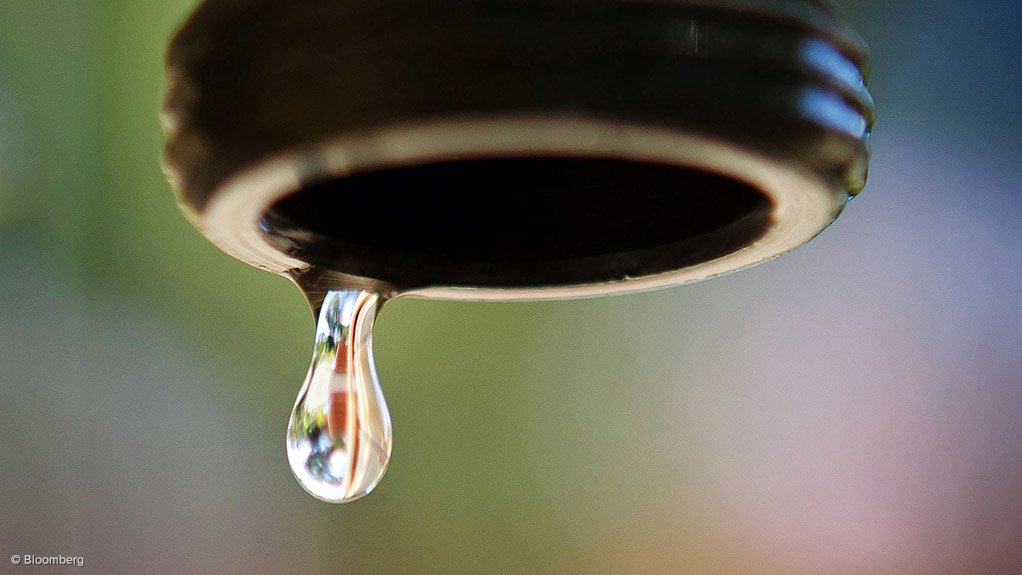The content on this page is not written by Polity.org.za, but is supplied by third parties. This content does not constitute news reporting by Polity.org.za.
The Minister of Water and Sanitations, Nomvula Mokonyane, has noted several political utterances by the Premier of the Western Cape, Ms. Helen Zille, and the leader of the Democratic Alliance (DA), Mmusi Maimane, with regards to the water crisis in the Western Cape and in particular, Cape Town.
What the Premier and leader of the Democratic Alliance have sought to do is to absolve themselves of their responsibilities in the management of the water crisis through an attempt to mischievously create scapegoats and shift the blame on the seriousness of the water crisis to national government and the Minister in particular.
The Minister of Water and Sanitation together with the City of Cape Town and the provincial ministry of Local Government, Environment and Development Planning in the Western Cape have held several meetings in an effort to manage and mitigate the effects of the drought on water availability for the province.
These engagements gave birth to the Restrictions Management Committee and the Joint-Operations Centre that have been overseeing the drought management functions and interventions in the province with the joint participation of local, provincial and national government.
Through these efforts a Water Indaba, bringing together the whole of government, the private and agricultural sectors along with academics and experts, was convened to look into the various possible solutions and actions necessary to avert a water black-out. Several of the proposals emanating from these engagements have since been pursued including desalination options, the recycling of water, further increases in restrictions, clearing of canals, dredging of dams and expediting the implementation of the Berg River-Voelvlei augmentation scheme.
Currently, the rate of abstraction from the Western Cape Water Supply System has increased despite restrictions gazetted by the department of water and sanitation which placed a 45% water use restriction for domestic users and 60% for agriculture. The Cape Town Water Supply System (Six Dams supplying Cape Town) alone, decreased by a highly concerning 1,43% in the last week leaving the dam levels at 26,94%.
We continue to see falling reservoir capacities and the combined capacity of the 43 dams in the Province which we monitor on a weekly basis decreased by 1.37% in the last week to 25,21%.
The City of Cape Town, now on Level 6 restrictions, are still not achieving their target of 500 megalitres per day and are over by approximately 86 megalitres per day.
Urgency is required in assisting the City of Cape Town to avert #DayZero through increases public awareness and enforcement of compliance with water use restrictions in order to stretch the available water resources and minimize the possibility of a #DayZero.
"The Western Cape drought and current water crisis in Cape Town requires a massive public involvement process where citizens adhere to and assist in identifying those who still continue to use water irresponsibly. No amount of politicking and scapegoats will do away with the imminent water blackout we face in the Western Cape if we fail to act responsibly."
"What the Premier and Mmusi Maimane are trying to do is to shield the province and their organization from accountability on the water crisis by shifting blame on the issue to National Government without acknowledgment of the interventions implemented thus far in support of the province by the National government working through the National Disaster Management Centre. "
"As a department we have successfully intervened and saved several provinces who were devastated by the drought over the last three years and will continue to do so in the Western Cape as well. Our mandate for water provision and support knows no politics and we will not be drawn into petty political squabbles whilst the people and economy of the Western Cape are on the verge of a possible water supply blackout."
"Defeating Day Zero has been and continues to be our main priority and the work that has been done over the last year will continue with increased urgency to ensure we guarantee access to water for citizens" said Minister Mokonyane.
On 12 January 2018 the department published additional interventions in the Government Gazette with regard to limiting the use of water in the Breede-Gouritz and Berg-Olifants Water Management Areas. This notice includes inter-alia the following:
- Curtailing groundwater abstractions for domestic and industrial use by 45% and for agricultural use by 60%. This brings the restrictions on groundwater use in line with the restrictions applied to surface water use.
- Curtailment of water for irrigation use from the system dams once the users have depleted their seasonal bulk volumes (for some users this could be as early the end of January 2018).
- The installation of electronic water recording and monitoring/measurement devices.
Additional officials have also been deployed from the department to the province to strengthen our compliance and enforcement capabilities in the province to ensure that water-users comply with restrictions and that we deal effectively with any transgressions.
Minister Mokonyane will over the next few days hold several follow-up meetings with the various stakeholders to assess progress on the implementation of current interventions and an assessment of new interventions necessary to avert #DayZero.
Issued by the Department of Water & Sanitation
EMAIL THIS ARTICLE SAVE THIS ARTICLE ARTICLE ENQUIRY FEEDBACK
To subscribe email subscriptions@creamermedia.co.za or click here
To advertise email advertising@creamermedia.co.za or click here











